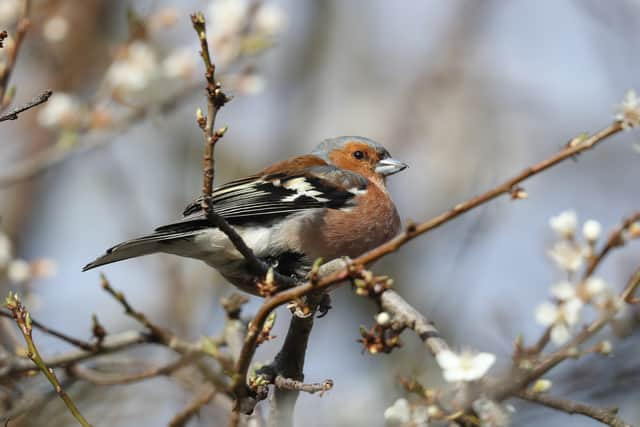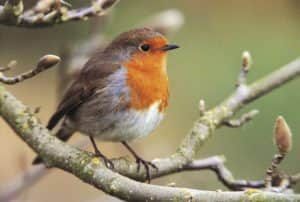RSPB’s Big Garden Birdwatch starts this weekend: here’s how to take part
This article contains affiliate links. We may earn a small commission on items purchased through this article, but that does not affect our editorial judgement.
and live on Freeview channel 276
You can be part of the world’s largest garden wildlife survey as The Royal Society for the Protection of Birds’ (RSPB) Big Garden Birdwatch returns this weekend.
The survey is expected to see hundreds of thousands of people watching and counting the UK’s garden birds from Friday 28 January to Sunday 30 January.
Advertisement
Hide AdAdvertisement
Hide AdThe public is asked to spend one watching and recording the birds in their garden, balcony or local park, then send their results to the RSPB.
You can sign-up to download a free guide for advice and ID tips and share your stories and photos on social media using #BigGardenBirdwatch.
Last year, more than a million people across the UK took part, making it the biggest Birdwatch ever.


What’s been said
“We were blown away by the enthusiasm with which people took part in the Birdwatch in 2021,” said Beccy Speight, the RSPB’s chief executive.
Advertisement
Hide AdAdvertisement
Hide Ad“We know that for many people, garden birds provide an important connection to the wider natural world and bring enormous joy.
“Over the last year, there has been a broad and much-needed realisation that nature is an important and necessary part of our lives especially for our mental health and well-being. But nature needs us too.


“By taking part in the Birdwatch, you are helping to build an annual snapshot of how ourbirdlife is doing across the UK. It is only by us understanding how our wildlife is faring that we can protect it. We know that nature is in crisis but together, we can take action to solve the problems facing nature.”
The pandemic may have closed doors during its scourge but it has also opened many people’s eyes to the importance of the natural world.
Advertisement
Hide AdAdvertisement
Hide AdInterest in the nature on our doorsteps seems to have risen as many came to rely on garden birds to bring joy and comfort in these unsettling times.
Millions of birds counted in RSPB’s Big Garden Birdwatch
Now in its 43rd year, more than 150 million birds have been counted giving the RSPB an astonishing amount of insight into how our wildlife is faring.
RSPB’s Big Garden Birdwatch survey is the largest citizen science survey in the UK and is a part of the RSPB’s Centre for Conservation Science.
The centre was set up with the aim of finding practical solutions to the most pressing conservation problems, whether it’s working out how to save a species on the verge of extinction or restoring a destroyed rainforest.
Advertisement
Hide AdAdvertisement
Hide AdLast year 17 million birds were counted over a three-day period during the Big Garden Birdwatch.
The house sparrow remained at the top of the survey’s ranking as the most commonly seen garden bird, with 2.6 million sighted. The blue tit and starling completed the top three.
For four decades, the Big Garden Birdwatch has highlighted the winners and losers in the garden bird world.
While house sparrows and starlings may be the UK’s most commonly sighted birds, a closer look at Big Garden Birdwatch data shows that numbers have in fact dropped dramatically since the survey began in 1979.
Advertisement
Hide AdAdvertisement
Hide AdHouse sparrows are down 58 per cent while starlings are down 83 per cent.
“Whether you saw one blackbird, 20 starlings or no birds whatsoever, it is really valuable information as it helps us build a picture of how our garden birds are faring from one year to the next,” said Beccy.
For your free Big Garden Birdwatch guide, which includes a bird identification chart, toptips for your birdwatch, RSPB shop voucher, plus advice on how to help you attract wildlife to your garden, text BIRD to 70030 or visit: www.rspb.org.uk/birdwatch.